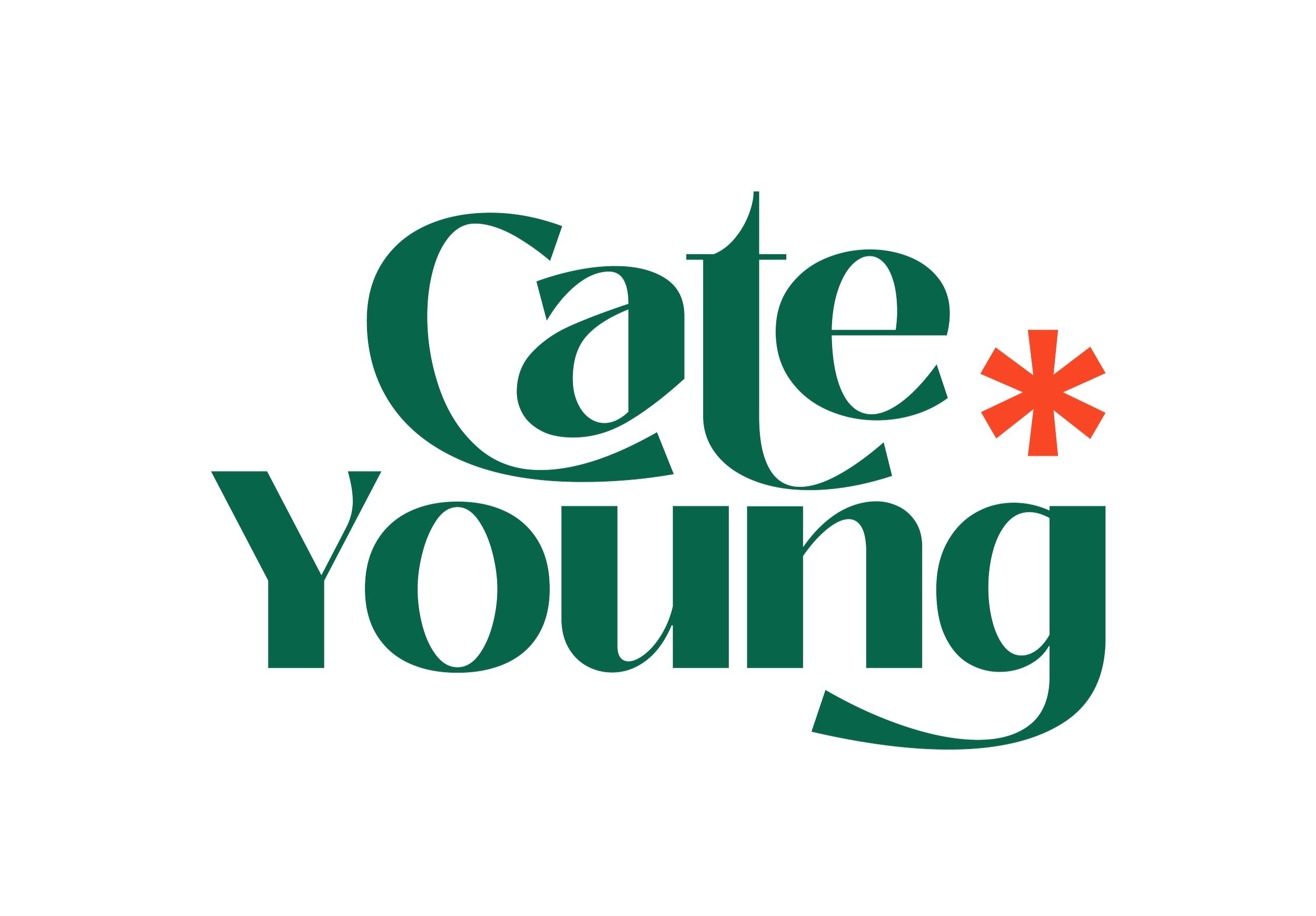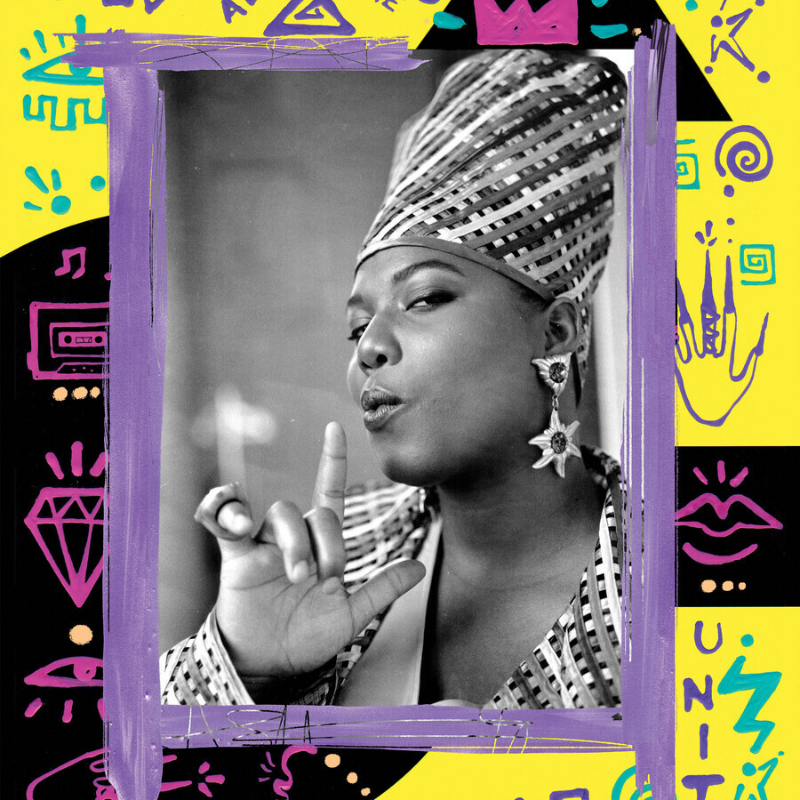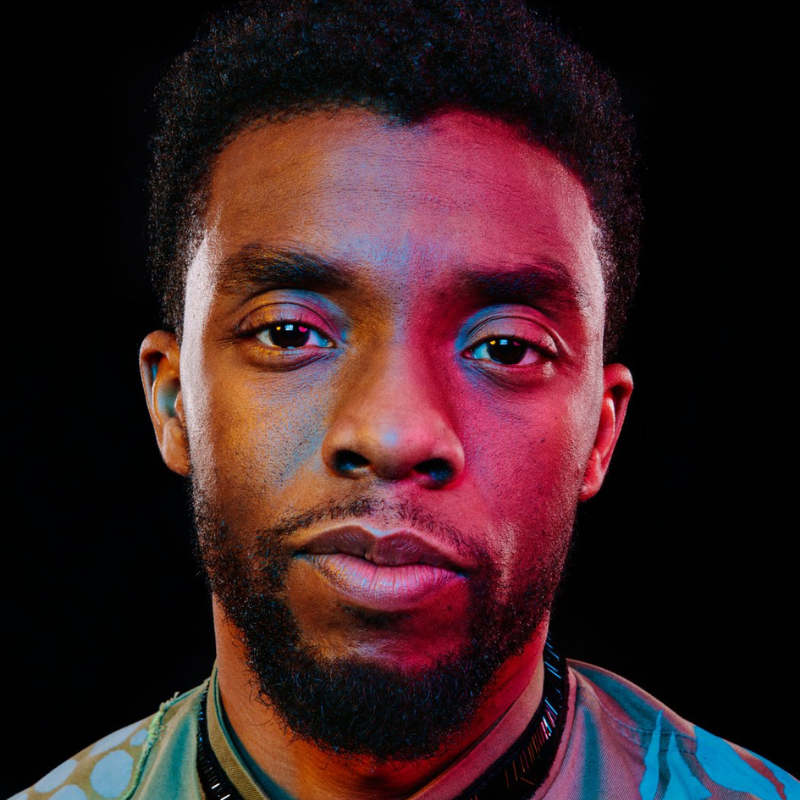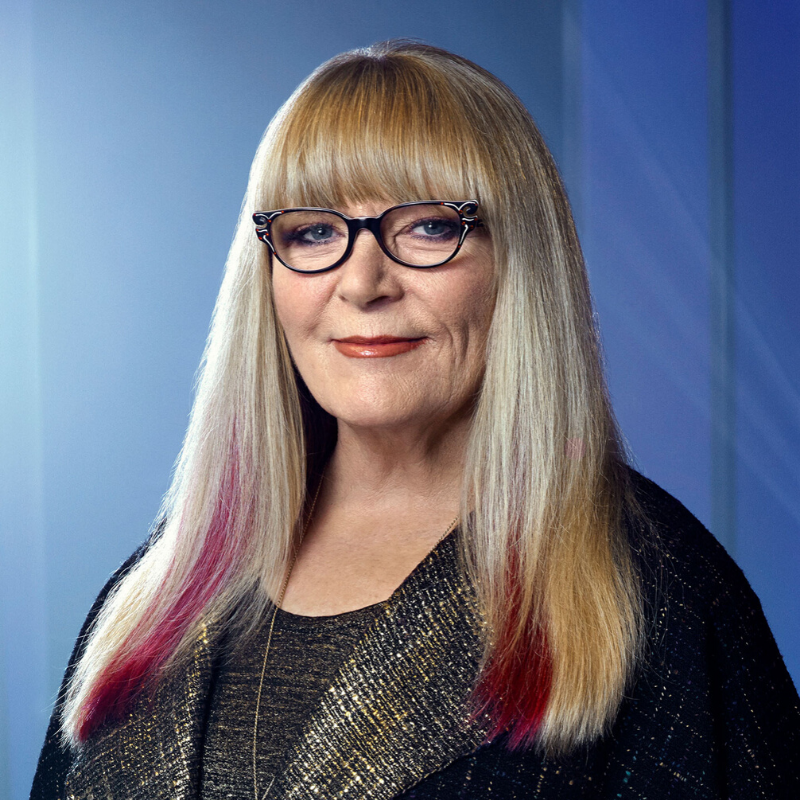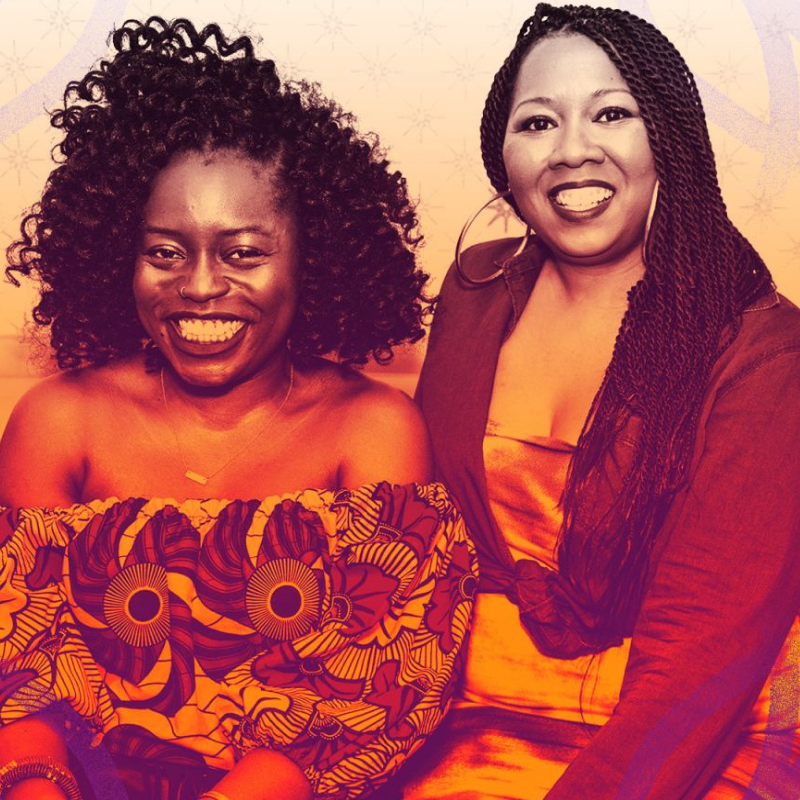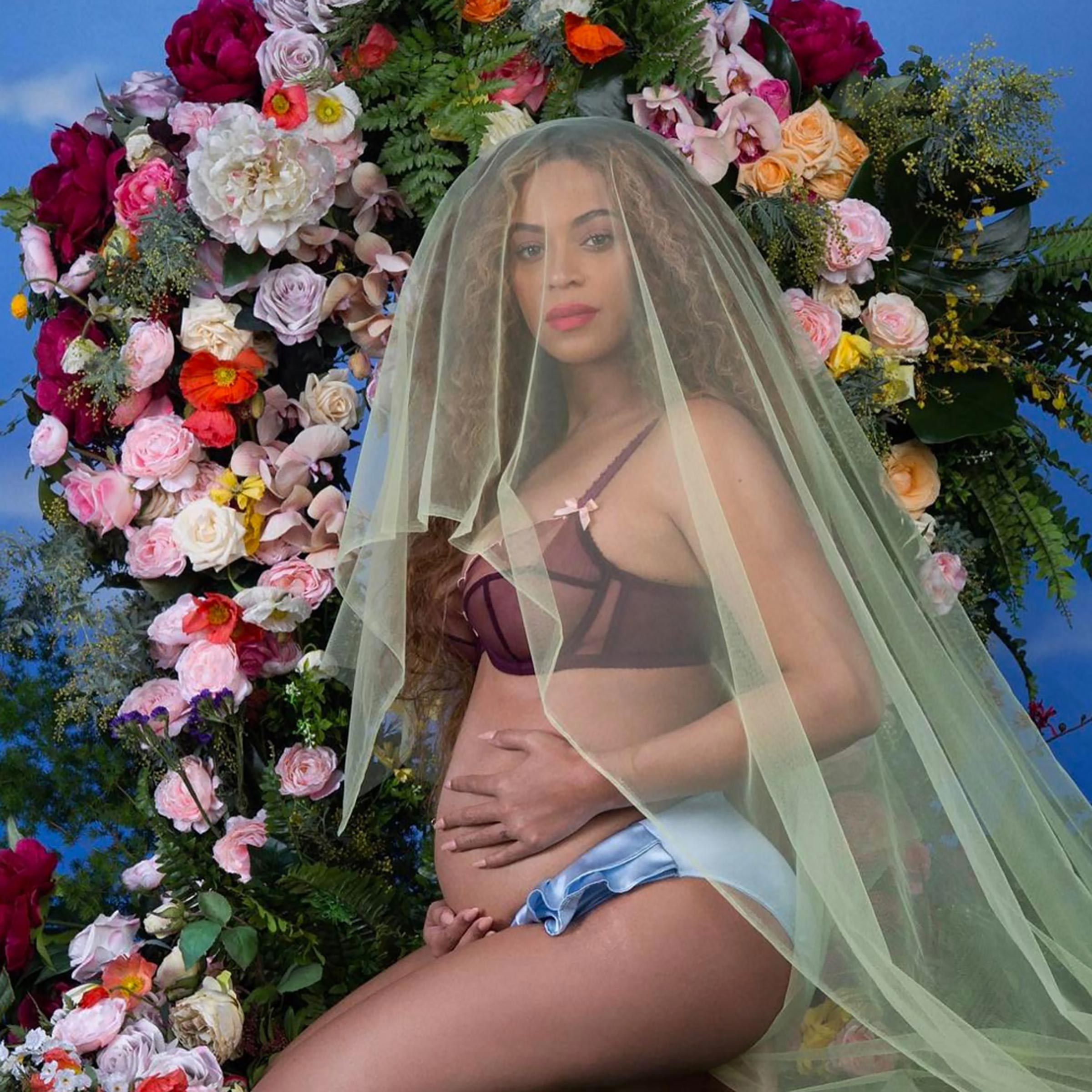Bitch Media
“Impeachment: American Crime Story” Has a Woman Problem
Paulson defended the use of the suit in a recent Los Angeles Times, reasoning that actors have more than just their bodies to offer to a given role. And that’s true, but it doesn’t absolve her, as one of the show’s executive producers, of making a lazy choice. As with her earlier turn as Marcia Clark in ACS: The People vs. O.J. Simpson, Paulson had the opportunity to bring new dimension to a misunderstood woman, but instead made decisions that merely reinforce the dominant perception of her.
Queen Latifah Recreated the Rom-Com in Her Image
In 2018, comedic actor Rebel Wilson received swift backlash when she claimed her starring role in Isn’t It Romantic made her the first plus-size actor to lead a studio romantic comedy. Though Wilson was mistaken—fat Black women had come before her—she was merely hewing to the conventional wisdom of the film industry at large: Romantic comedies are white.
“Bad Hair” Makes a Tangled Mess of Black Women’s Woes
Hulu’s version of the film wisely excises this tasteless portion, but the result is a toothless satire that never builds to a convincing point. In his quest to create a fable about Black women’s hair, Simien overlooks the actual function it plays in Black women’s lives, opting instead for a superficial finger wag about the value and importance of natural beauty.
Conjuring Possibilities: Remembering Chadwick Boseman, a Champion of Black Stories
Activist Marian Wright Edelman said, “You can’t be what you can’t see.” Reductive as the sentiment may seem, it holds an essential truth. We exist in an unequal world that still struggles to fund and promote stories that don’t reinforce existing power structures. Stories are how we understand the world. Without stories that allow for Black girls to be in space or for disabled people to be the hero, it can be hard for viewers to independently develop the imagination needed to conjure those possibilities. What’s reflected to us in pop culture helps us understand how the world works and what’s possible for us within it.
Jennifer Lopez Is Still The Unstoppable Flygirl
It’s hard to overstate Jennifer Lopez’s cultural impact. From her humble beginnings as a backup dancer to becoming an internationally renowned singer and film star, Jenny from the Block has been one of Hollywood’s hardest-working entertainers for three decades—and there are no signs of her star power dimming anytime soon.
A Wrinkle In White Supremacy: Even Time Travel Can’t Beat Police Brutality
The idea of time travel is fascinating because it opens up new avenues to consider alternative pasts and futures. In movies, ranging from 1954’s Brigadoon to the quintessential 1985 classic Back to the Future, possibilities are limited only by the reach of our collective imagination. While these opportunities are exciting, time often operates differently for Black people: Past and present are interwoven as historical harms resurface in each generation, creating cyclical trauma that extends into an unseen future. It’s almost inevitable then that as Hollywood struggles with telling stories about police violence in the United States, time travel has crept into the equation as a possible remedy.
Makeup Is Ve Neill’s Superpower
Ve Neill knows her way around a face: The prolific makeup artist has been working on Hollywood productions for more than four decades—and has the hardware to prove it. With 15 awards, including three Oscars, Neill has more than proven that she’s the real deal.
Cheryl Dunye Is The Multitalented Film Legend You Should Know
Director, producer, actress, and writer Cheryl Dunye makes waves in Hollywood. She’s an auteur in the truest sense, often taking on all of these roles on her projects simultaneously. The Liberian lesbian tour de force weaves themes of identity directly into her work, exploring family, sexuality, and queerness onscreen with equal verve.
How Lou Eyrich Dresses To Kill
In her nearly 30-year career, costume designer and producer Lou Eyrich has designed the costumes for some of our favorite television shows. Fans of Ryan Murphy’s oeuvre are intimately familiar with her award-winning ability to create the clothing that his characters wear, telling a complementary story about the wants, needs, likes and dislikes of high school underdogs or witches seeking their next Supreme. Eyrich is an expert at storytelling through fabric.
She’s Gotta Have It Mishandles Shemekka Epps’ Body Issues
While Nola’s choices are repeatedly validated, the show looks down on Shemekka for choosing to alter her body for a shot at a better job and a bigger paycheck. Despite the show’s progressive undertones and general “wokeness,” Shemekka’s treatment is a regressive streak that reinforces the harmful binary that pits different kinds of Black women against each other.
How Reese Witherspoon Brings The Sunshine To Hollywood
Reese Witherspoon might not actually be Elle Woods, but she has carried the plucky feminist spirit of Harvard’s shining star throughout her career. After an extensive career as an actress, Witherspoon has used her visibility and clout to amplify stories by and for women through her production company Hello Sunshine, and like Elle, she doesn’t plan on stopping any time soon.
Cord Jefferson Finds A (Good) Place For Pop Culture Optimism
In 2017, Mike Schur’s The Good Place started as another quirky NBC comedy that then blossomed into a bonafide cultural phenomenon. Behind the scenes, writers were working to create an optimistic vision of the world that could still entertain. We spoke with writer Cord Jefferson about what makes The Good Place great, why the show’s odd premise appeals to so many, and why he think it will always have staying power.
Justice In America Dreams Of A World Without Bars
Hosts Josie Duffy Rice and Clint Smith III are the podcast’s secret weapons, with their expertise on prosecutors, prisons, incarceration, and inequality helping them get to the heart of complicated issues in a straightforward way. Each episode goes in-depth into one aspect of the justice system’s ills, comprehensively inspecting, explaining, and illuminating the fundamental building blocks of the disparate cogs in the judicial machine. Within the first 10 episodes, Justice in America covers the proliferation of cash bail, mass incarceration, the outsized power of prosecutors in determining plea deals, and other critical issues.
How Debbie Allen Became Black Hollywood’s Fairy Godmother
Actress, dancer, choreographer, director, and producer Debbie Allen has been in the TV business for 40 years. She’s considered the “fairy godmother of Black television” because she’s worked on several beloved Black sitcoms. Spanning Broadway in the 1970s to primetime dramas in the 2010s, no corner of television is untouched by her influence and at 68, she shows no signs of slowing down.
Thirst Aid Kit Is Our New Favourite Drool Tool
There are some things we’re discouraged from discussing in polite company, like where we’d want Colin Farrell to touch our body. But Thirst Aid Kit, a BuzzFeed podcast hosted by Bim Adewunmi and Nichole Perkins, dispenses with that conventional wisdom to validate our collective thirst (defined by Adewunmi in a 2015 BuzzFeed article as “the vocalization of lust”) over celebrities like Keanu Reeves, Rahul Kohli, and Mahershala Ali.
How Marti Noxon Wrote Difficult Women Into TV History
Marti Noxon has a penchant for difficult women. Over the last 20 years, the writer, producer, director, and showrunner has helped shape some of the most indelible female characters—and she’s not slowing down anytime soon. With three shows currently airing and several on the horizon, Noxon is set to make an even bigger mark on television.
The Hate U Give And The Burden of Racial Awareness
In The Souls of Black Folk, W.E.B. Du Bois describes “double consciousness” as the difficulty of “always looking at one’s self through the eyes of a racist white society and measuring oneself by the means of a nation that looked back in contempt.” It’s the principle that guides The Hate U Give’s Starr Carter until a tragedy merges her two worlds. The Hate U Give, based on Angie Thomas’s bestselling young-adult novel, examines Starr’s relationship to Blackness after she witnesses the police-involved death of her childhood friend Khalil.
A Star Is Born Treats Pop Music As A Telltale Sign Of Selling Out
Jackson’s perception of the music Ally makes after she becomes a pop-music star is a sexist designation that’s rarely applied to men who make the same commercial turn (La La Land excepted). What Jackson comes to describe as Ally’s artistic insincerity is very nakedly the nascent bloom of his own jealousy: Her musical versatility brings her the mainstream success he never dared to aspire to. His disdain is less about Ally’s music ceasing to be “real,” and more about the unbridgeable gulf it creates between them.
How Gloria Calderón Kellett Turned TV Into Her Playground
Whether you’re into crime-solving zombies, close-knit friends seeking justice for their murdered companion, or the struggles of a working-class mom and her family, Gloria Calderón Kellett is responsible for some of your favorite television shows. She’s also increasing and improving onscreen representation for Latinx communities.
Dick Wolf, Shonda Rhimes, and Ryan Murphy might get all the showrunner shine, but Kellett is a powerhouse creator in her own right, and she’s perfectly poised to take over television.
Turning 20: How The Music Industry Transformed Lauryn Hill From Superstar to Specter
The decline of Hill’s career is a cautionary tale for artists who refuse to bend to the whims of the celebrity machine. The world has never had much patience for Black women who don’t play by the rules, and even less for Black women who behave as though the rules don’t exist in the first place. (In 2013, when her magnum opus turned 15, Hill was serving a three-month sentence for tax evasion.) So it’s funny that The Miseducation of Lauryn Hill can now be interpreted as a fundamentally conservative album.
Dietland And The Language of Fatphobia
Since Plum is fat, not even her whiteness can grant her access to the soft, benevolent utterances that she would otherwise be entitled to if she were thin. Fat is an aberration, and aberrations must be corrected. Thinner women might be granted ego-preserving euphemisms like “curvy” or “voluptuous” but larger women are simply fat. They are not seen as requiring the sensitivity normally extended around fraught issues of body shame and body image. Indelicate language is seen as tough love.
Sadistic Storytellers: Unpacking The Exploitative Violence of Rape-Revenge Film
Rape-revenge films must always center the victim rather than the physicality of her pain. There are meaningful stories to be told about women seeking to punish the men who harm them, but they cannot also be a place where women’s bodies are reduced to nothing but faceless receptacles of male savagery.
How TV Is Diversifying Family Structures
These extended families are their own miniature communities where members can find financial, emotional, and educational support. By distributing the caretaking responsibilities between more people, everyone has a richer, fuller familial existence. By showing these extended families, TV is expanding our understanding of what families can look like.
No Grace For Women: Queen Sugar Traffics In Toxic Masculinity
Although he understands how oppressive gender roles can be, he is happy to reinforce them if they validate his own sense of self. It’s important to balance praise for his casual dismissal of patriarchal constraints for men with condemnation for the way he weaponizes them against women. Ralph-Angel’s story is critical to demonstrating the real world difficulties that Black men face when reintegrating into society after incarceration, but it largely sidesteps the ways in which he both takes advantage of and dismisses the encouraging family support system available to him
The "Scandal" Effect: The Rise of Flawed Black Female Protagonists
Scandal’s influence has been felt throughout the entertainment industry, affecting everything from the quality of roles for Black women to making networks less hesitant to invest in programming by and for other minority groups. Everyone wants a piece of the Scandal pie, and as the juggernaut takes its final bow to make room for the peak TV content that has sprung up in its wake, it’s clear that desire for more diverse stories has not abated.
Carrying The Future: There's No Birth Control In Future Dystopias
It’s hard not to see the dystopian mismanagement of fertility as a symptom of a larger disregard for women’s stories. In a way, this reveals larger cultural attitudes about women’s fertility. Reproductive care is seen as an individual responsibility, rather than something that society at large has a vested interest in managing on a social or economic level.
On Supergirl’s Flimsy Feminism
The problem, as it often is when feminism finds its way onscreen, is that Supergirl excludes girls of color from its “empowering” narrative. The show’s feminism is flimsy, relying on the propensity of female characters to use violence with equally as much vigor and skill as men. In contrast to the recently cancelled Agent Carter, which used items coded as traditionally feminine to fight the patriarchy, Supergirl simply has its female heroes defeat male villains in battle; it measures female strength by its ability to conform to ideas of traditional masculinity. But platitudes have their place, and girls of color deserve access to the same trite confidence boosters as everyone else.
Black Madonna: Deciphering The Gospel of Beyoncé
Beyoncé enjoys a specific kind of power few Black women ever attain, and it’s part of why Black women are among her most devoted fans. Here is a Black woman creating clear boundaries about how much of herself will be accessible to us. “You get this much and nothing more,” she seems to be saying. Her art exists for your consumption, but her body itself does not.
Alternative Facts, Real Fiction: A Younger Roundtable
I find a lot of value in the idea that “the truth” isn’t the same as “the facts” because our individual experiences so often color our perspectives that it’s not only possibly but highly likely that two sets of people can have entirely contradictory takeaways. Just because something is a fact doesn’t mean it’s an objective truth.
Still Star-Crossed Is The Racebent Fairytale Shakespeare Never Delivered
While the multiethnicity of the characters is never explicitly mentioned, the show trusts the audience to ferret out the parallel meanings it presents. The racial dynamics of the story are explicitly engaged with in a way that adds a familiar layer of interpretation. Still Star-Crossed demonstrates that it is possible to diversify the stories we tell, including the ones we may not usually think lend themselves to diversity
Whiteness As A Weapon: The Historical Wounds of "Unforgettable"
While the plot of Unforgettable is good, campy fun, it also lays bare how white women often use their cultural presumption of innocence against women of color. White women’s “tears” are a powerful elixir, and the social capital they afford does not extend past the limits of white femininity.
Black Venus Rising: The Symbolism of Beyoncé's Pregnancy Photos
Anyone who has seen Lemonade can tell you that Beyoncé is fond of bending symbols to her will. From sinking a police car to dressing her dancers as Black Panthers, Yoncé has made it clear that she's aware of her place in our culture and understands the responsibility of wielding such vast influence.
The Year In Black Girl Magic
Of course, a year-end list could never fully encapsulate the multitude of ways in which Black women displayed their excellence in 2016. From Simone Biles sweeping the Olympics to Black actresses like Tracee Ellis Ross and Viola Davis finally getting the awards recognition they deserve, it’s clear that Black women have long known how to thrive when the odds are against us.
Male Tears For Fears: Embracing The Ironic Performance of Misandry
The rising prominence of feminism in mainstream discourse does mean that fewer men will automatically have access to unearned privilege. But the key word is “unearned.” In a fair and just world, men never would have been privy to those benefits in the first place.
Bwitch, Please: An Interview With Johanna Middleton and Martine Moore
Billed as a “witch's brew of comedy, camp, and commentary,” the five-episode web series Bwitches, cocreated by best friends/roommates Johanna Middleton and Martine Moore, tackles everything from dating to racial microaggressions from the perspective of two women of different races.
Reboot And Rally: The Revolutionary Opportunities Inherent In Reupping Franchise Favourites
Culturally, we have very specific ideas about who gets to be the hero, who is seen as a villain, and who gets to save the world. Racebending films that already exist allow us to easily cheat the boundaries of diversity, but also to add new dimensions to clichéd stories. They make inroads into our perception of who gets to be loved and valued and who gets to be protected. Racebending allows us to slowly widen the margins of who is allowed to have their stories told.
Performance Anxiety: Why I'm Here To Watch Drake Worship Rihanna
Pop culture is so full to the brim of narratives that reinforce the idea that no man would proudly claim a Black woman as his love and equal partner that it’s easy to feel like Black women are singularly undeserving of love and adoration. Even Eartha Kitt spoke publicly about her difficulty dating intraracially due to the prevailing idea that a Black woman had little to offer a man on the rise.
On "Orange Is The New Black" And The Destruction Of Black Bodies
Art is meant not just to reflect life, but to comment on it. To distill a universal truth about the mundane lives we live and supply us with a greater understanding of ourselves. The artist’s responsibility is not simply to reproduce the violence that exists, but to deconstruct it. What did this season of OITNB add to the conversation about police brutality that hadn’t already been said? How was this plotline any different from a simple reproduction of Black trauma?
When Visibility Isn't Enough: Abigail Mills And The Failed Promise of Sleepy Hollow
The quiet magic of Sleepy Hollow was its unassuming diversity. Abigail Mills and Ichabod Crane, joined together as Witnesses to a biblical prophecy across time, spent each week saving the world from apocalypse. Their adventures straddled genres from sci-fi to historical fiction, granting the Black women offscreen access to those spaces as the characters fought mythical monsters. But after a spectacular debut, the sophomore season saw Abigail and other visible minority characters consistently sidelined in favor of newly introduced white characters.
Portrait Of A Serial Monogamist
Elsie leaves her girlfriend of five years simply because she’s bored. But to her dismay, Elsie discovers that jumping back into the dating game isn’t as easy when you’re 40 and have dated most of the other eligible women in the area. Portrait avoids the tired trope of the manic pixie dream girl rescuing a playboy from their own emotional unavailability, when we see Elsie unable to even commit to an earnest young woman sent to save Elsie from herself.
